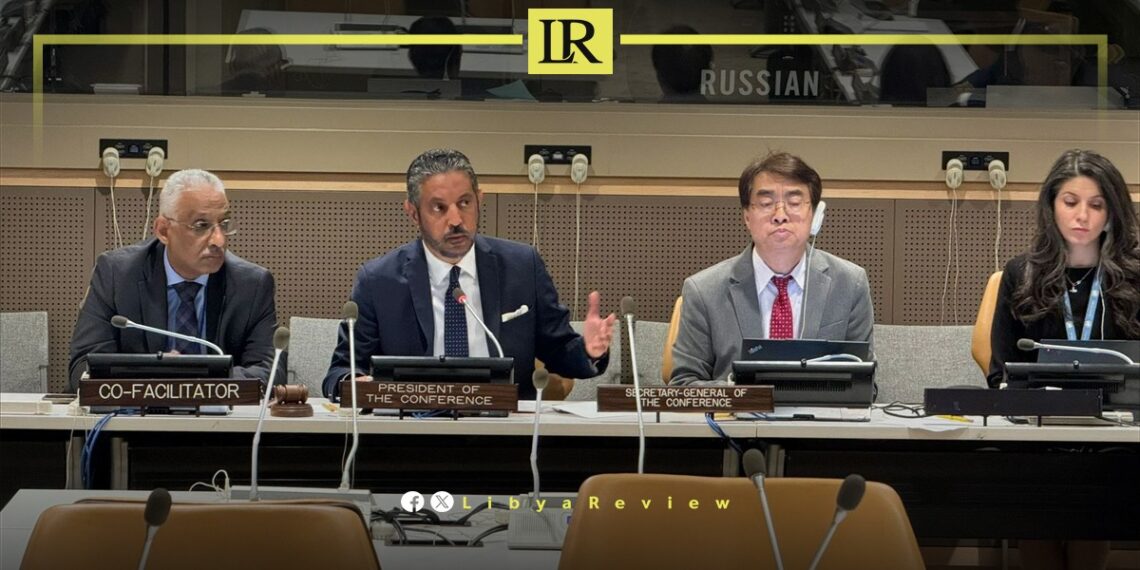Libya chaired meetings of the Working Group of the Conference on the Establishment of a Nuclear-Weapon-Free Zone and Other Weapons of Mass Destruction in the Middle East in New York.
According to Libya’s Permanent Mission to the United Nations, Ambassador Taher Mohamed El-Sonni, as the President of the Fourth Session of the Conference on the Establishment of a Nuclear-Weapon-Free Zone and Other Weapons of Mass Destruction in the Middle East, chaired the second meeting of the Working Group, in coordination with the United Nations Office for Disarmament Affairs in New York.
The mission explained that these meetings, held over three days, addressed the agenda item “Peaceful Uses of Nuclear Energy,” during which several scientific papers were presented by a group of experts from specialized international organizations.
The committee discussed, according to the mission, the frameworks and current global arrangements for peaceful uses and best practices and lessons learned regarding peaceful uses in other regions of the world, in addition to the priorities of Middle Eastern countries regarding peaceful uses, safety and security practices, and potential institutional arrangements for peaceful uses within the region’s future framework.
This engagement underscores Libya’s commitment to regional disarmament efforts and its active role in promoting peace and security in the Middle East.
Libya has been in chaos since a NATO-backed uprising toppled longtime leader Muammar Gaddafi in 2011. The county has for years been split between rival administrations.
Libya’s economy, heavily reliant on oil, has suffered due to the ongoing conflict. The instability has led to fluctuations in oil production and prices, impacting the global oil market and Libya’s economy.
The conflict has led to a significant humanitarian crisis in Libya, with thousands of people killed, and many more displaced. Migrants and refugees using Libya as a transit point to Europe have also faced dire conditions.
The planned elections for December 2021 were delayed due to disagreements over election laws and the eligibility of certain candidates. This delay has raised concerns about the feasibility of a peaceful political transition.
Despite the ceasefire, security remains a significant concern with sporadic fighting and the presence of mercenaries and foreign fighters. The unification of the military and the removal of foreign forces are crucial challenges.


